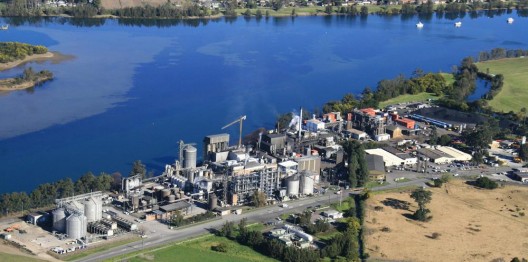Both Aviation Week and Flight Global reported on Algaetec’s announcement at the ILA (Berlin Air Show) that it had signed a memorandum of understanding with Lufthansa to provide algae-based jet fuel to the German carrier. Algae.Tec is an Australian maker of clear algae oil that pulls CO2 from industrial processes, combines it with sunlight, and produces large batches of odorless oil.
The product achieves the “holy grail” of sustainability, according to Executive Chairman Roger Stroud, because it is made from non-food sources, unlike corn- or agave-based ethanol, for instance. It also uses CO2 that would otherwise be subject to expensive sequestration processes.
The technology is proprietary and barely hinted at in the company’s videos, but is housed in 40-foot long shipping containers connected to solar arrays. CO2 and sunlight combine to produce a fuel stream in a compact production space.
Aviation Week reports that, “The company’s process grows algae in a controlled environment in 40-ft shipping containers, feeding the algae nitrates and phosphorous, supercharging them with carbon dioxide and beaming in sunlight through fiber-optic cables. Algae reproduce in two hours, and are harvested continuously.
“Carbon can be sourced from any industrial facility. Stroud estimates that one 1,000 megaWatt coal-fired electricity generating plant could provide enough carbon dioxide for an algae farm to produce 1-1/4 million tons of jet fuel a year.”
A small land footprint represents another plus for the process, since pond algae requires almost 13,000 acres to produce 100,000 tons of oil per year. Algae.Tec’s system uses only 1,270 acres for the same output. Palm oil would require over 48,000 acres, jatropha – 130,000 acres, and corn – 1,760,000 acres.
The company has a “full commissioning mode” facility near Sydney, an R&D center in Atlanta, Georgia, and partnerships with universities in Texas and Wollongong, Australia. Other facilities being considered in Brazil and Europe.
With funding, Stroud thinks that algae-based fuels, “Could be supplied in ’meaningful’ volumes within two-and-a-half years, and at ‘very significant’ levels by 2020.”

